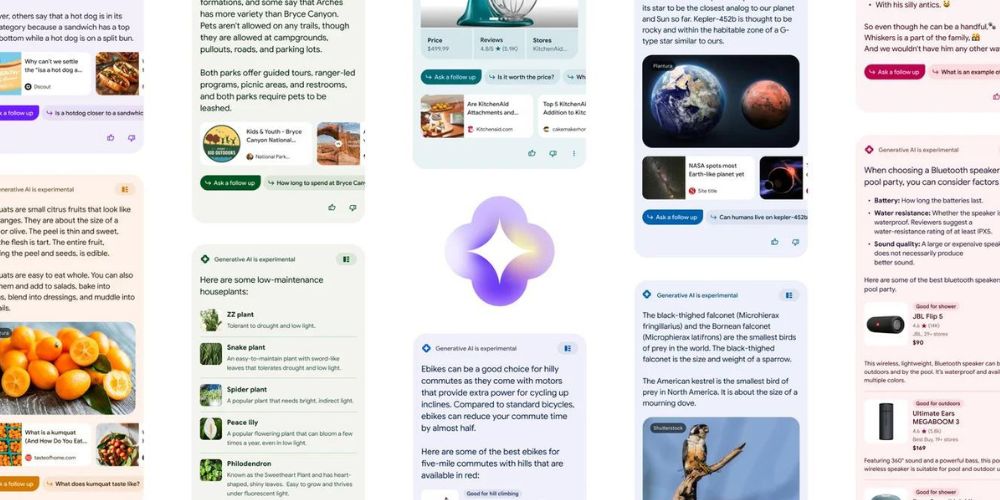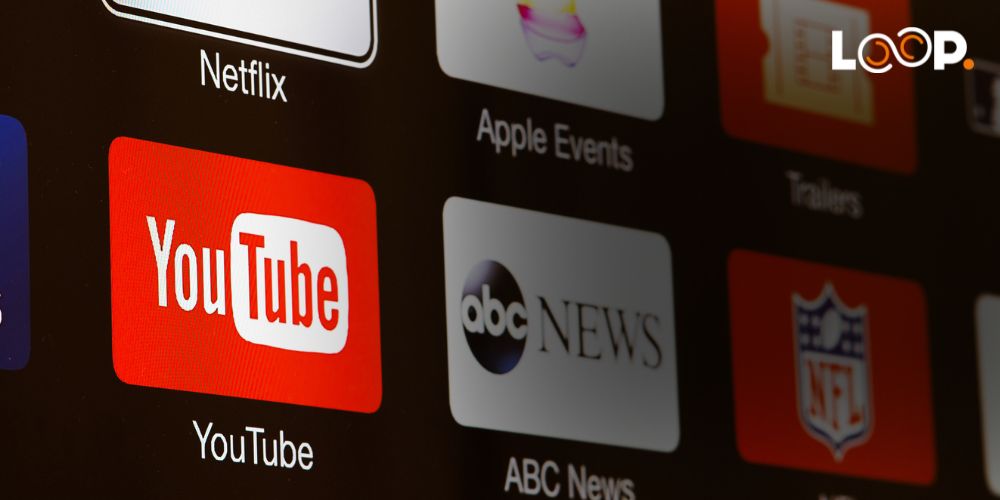Mel is our Partner Strategy & Delivery Manager and also a CIM Chartered Marketer, a testament to her commitment to excellence in the field. But Mel’s contributions don’t stop at the office door. Beyond her professional endeavours, she leads an active life as a qualified run leader and dedicated volunteer. Her experience in these roles has streamlined her leadership and teamwork skills, making her an invaluable asset when it comes to collaborating on projects and ensuring their success. Her sharp insights, strategic thinking, and knowledge have made her a backbone in our team’s ability to drive results for clients in this industry. Mel will make sure that we can approach marketing challenges from all angles and deliver outstanding results for our clients.
Posted on 30/05/2023 by Melanie Comerford
Digital Marketing News May 2023
Welcome to our latest marketing news update, the ultimate destination for marketing professionals seeking the latest updates, trends, and strategies in the ever-changing world of digital marketing. Whether you’re an SEO expert, a paid media guru, or a social media enthusiast, this blog is your go-to resource for staying ahead of the game.
In this edition, we’re reviewing all of the biggest digital marketing headlines; from Google’s groundbreaking Search Generative Experience (SGE) to Twitter’s withdrawal from the EU’s Code of Practice on disinformation. Let’s dive into the latest and most seismic developments that landed in the marketing industry throughout May.
Important SEO Updates to Watch
Google Debuts Generative Search Experience
At this point, we’d be surprised if you haven’t already caught of glimpse of the new Search experience at the Google I/O Conference. Since its reveal, Google has now given access to the new Search Generative Experience (SGE) to a limited number of users. The SGE is a new search method that uses artificial intelligence to generate more comprehensive and informative search results.
The SGE works by first understanding the user’s query. Once the query is understood, the SGE generates a list of possible results. The results are then ranked based on their relevance to the query. The SGE also generates a summary of each result, which can be helpful for users who are not sure which result to click on.

The SGE is still under development, but it has the potential to revolutionise the way people search and the way we carry out SEO. The SGE can help users find the information they need more quickly and easily. It can also help users learn more about the topics they are interested in.
Overall, SGE is a major change for SEO. SEOs who are able to adapt to these changes will be well-positioned to succeed in the future.
Here are some tips for SEOs who want to prepare for SGE:
- Create high-quality content that is relevant to the user’s query. This is the most important thing that SEOs can do to prepare for SGE.
- Use natural language in your content. SGE is designed to understand natural language, so using natural language in your content will make it more likely to rank well in the SERPs.
- Focus on user experience. Make sure your content is easy to read and understand, and that it provides users with the information they need.
- Stay up-to-date on the latest changes in SEO. SGE is just one of the many changes that are happening in SEO. SEOs who want to stay ahead of the curve will need to stay up-to-date on the latest changes.
Google will Depreciate Cookies for 1% of Users in Q1 2024
Google announced that it will begin phasing out third-party cookies in its Chrome browser in the first quarter of 2024. The company said that the move is part of its commitment to protecting user privacy. Third-party cookies are small files that are created by websites other than the one you are currently visiting. They are often used by advertisers to track users across the web and target them with ads.
Google has said that it will provide advertisers with alternative ways to target users. The company is working on a new technology called Federated Learning of Cohorts (FLoC). FLoC will allow advertisers to group users together based on their interests. This will allow advertisers to target groups of users, rather than individual users.
However, without third-party cookies, advertisers will have a harder time tracking users and targeting them with ads. This could lead to a decrease in the effectiveness of online advertising. Marketers and advertisers will need to find new ways to track users and target them with ads. Some of the ways that they can do this include:
- First-party cookies: First-party cookies are created by the website that you are currently visiting. Marketers can use first-party cookies to track users and target them with ads.
- Contextual advertising: Contextual advertising is a type of advertising that is based on the content of the page that you are viewing. Marketers can use contextual advertising to show ads that are relevant to the content that they are viewing.
- Retargeting: Retargeting is a type of advertising that shows ads to users who have previously visited your website. Marketers can use retargeting to show ads to users who have shown an interest in your products or services.
The depreciation of third-party cookies will be a challenge for marketers and advertisers, we’ll need to adapt to this change. By using first-party cookies, contextual advertising, and retargeting, you can continue to reach your target audiences and achieve your marketing goals.
Google Updates Data Retention Options for GA4
It’s been a very busy month for Google. Google Analytics 4 (GA4) has a new data retention policy that differs from what we’re used to with Universal Analytics. Currently, in Universal Analytics, data is stored for 26 months, however, with the GA4 transition coming up, the data, including conversion data, will only be stored for a maximum of 14 months. It’s also worth noting that 2 months is the retention period that is automatically applied to age, gender, and interest data.
The GA4 data retention policy is based on the following principles:
- Privacy: GA4 is designed to be more privacy-friendly than Universal Analytics. This is because GA4 uses a different data model that does not rely on cookies.
- Transparency: GA4 is more transparent about how data is collected and used. You can see exactly what data is being collected and how it is being used.
- Control: GA4 gives you more control over your data. You can choose how long data is stored and who has access to it.
Overall, the reduction of data retention options in GA4 will make it more challenging for marketers to track performance over extended periods of time. We recommend adapting your strategies to account for the shorter data retention period and finding new ways to collect and use data to achieve their marketing goals.
Google is yet to confirm exactly when it will be removing data from Universal Analytics, however, we know that the UA properties will stop processing new data from July 1st 2023.
PPC & Paid Media News
YouTube’s Rolling Out 30-Second Unskippable Ads to Connected TVs
The capacity to use YouTube to reach people via the biggest screen in their house has huge potential for marketers, with TV traditionally being the most effective avenue for broad-reach marketing. And increasingly, YouTube is now able to facilitate the same, but with more advanced targeting options than traditional TV reach.

The introduction of unskippable ads on CTVs is a sign of the changing landscape of TV advertising. As more and more people watch TV on their devices, brands are looking for new ways to reach their target audiences. Unskippable ads are one way to do that. Will be jumping on this growing trend?
Google Launches Ads Transparency Centre
An interesting one, Google has launched a new Ads Transparency Centre, which provides users with more information about the ads they see on Google’s platforms. The centre includes information such as the advertiser who paid for the ad, the region where the ad was shown, and the date the ad was last run.

The launch is part of Google’s ongoing commitment to transparency and accountability in advertising. Here are some of the key features of the Ads Transparency Center:
- Users can search for ads by advertiser name, campaign name, or keyword.
- Users can see a list of all the ads that an advertiser has run, including the date the ad was last run.
- Users can see the region where an ad was shown.
- Users can see the format of an ad.
The ATC is likely to have a significant impact on marketing professionals. Marketers will need to be more transparent about their advertising practices in order to comply with the ATC’s requirements. They will also need to find new ways to target ads effectively without relying on third-party data.
But it’s not just about compliance – the ATC also unlocks a wealth of competitive intelligence. Explore the ads of verified advertisers in your market, gaining valuable insights to fuel your PPC strategy and spark creativity.
Social Media Ad Spend Drops for the First Time
A new report from the Advertising Association and Warc revealed that social media ad spend in the UK has dropped for the first time since 2014. The decline was driven by a sharp fall in ad spend in the second half of 2022, following a period of strong growth in the first half of the year. The overall online display category grew by 10% in 2022, but social media spend within this category only increased by 4.9%. The report’s authors say they are seeing evidence the downward trend recorded in the second half of last year has continued into the first few months of 2023.
The fall in social media ad spend can be due to a variety of different factors but Warc’s director of data, intelligence and forecasting, attributes the decline to the financial pressures faced by small businesses.
Social Media News
Twitter Withdraws from EU Disinformation Code
Twitter has withdrawn from the EU’s voluntary Code of Practice on online disinformation, which is part of the Digital Services Act (DSA). The Code aims to implement clearer reporting and enforcement obligations for large online platforms, in order to combat spammers and scammers, as well as the spread of misinformation.
Twitter’s decision to withdraw from the Code has been met with criticism from EU regulators, who have warned that the company could face fines if it does not comply with the DSA’s requirements. Twitter has said that it remains committed to fighting disinformation, but that the Code was not the right way to do it.
The DSA is due to come into force in 2024, and it is unclear what impact Twitter’s withdrawal from the Code will have. However, it is clear that the company is now on a collision course with EU regulators.
YouTube is Retiring its Stories Feature
YouTube is the latest social giant to retire its Stories feature. The feature, which was launched in 2018, allowed users to share short, disappearing videos and photos. YouTube said that the feature was not used by enough people, and that it was not a “core part of the YouTube experience.”
The retirement of YouTube Stories comes as the company is facing increasing competition from other social media platforms, such as Snapchat and Instagram. These platforms have been more successful in attracting users to their Stories features, which are often used to share personal moments and behind-the-scenes content.
YouTube is not the only social media platform to retire its Stories feature. In 2020, Facebook announced that it would be shutting down its Stories feature, called “Facebook Stories.” The company said that the feature was not being used as much as other features, such as “Watch.” Who would’ve thought that copying and pasting your competitor’s key features wouldn’t take off?
Meta’s Twitter Competitor App is Set to be Launched
Meta’s Twitter competitor is moving closer to launch, with selected creators now being briefed on how Instagram’s text-based app – tentatively titled ‘Barcelona’ – will function.

The new app is essentially a simplified version of Twitter, more aligned with a chat-based feed, it’s designed to be like a giant group chat, that anybody can join – which is similar to Twitter, in concept, but with a more Instagram-specific tilt. The new platform is likely to generate lots of buzz when it debuts, but will it fizzle out? Time will tell!
Join our Level Up+ Community
That’s all folks! To stay up to date with our latest insights and digital marketing news, join our exclusive community designed for ambitious marketers like you who are eager to stay ahead of the game. By joining LevelUp+, you’ll gain access to a wealth of exclusive benefits. Be the first to receive early access to the latest marketing resources, news, and insights delivered straight to your inbox through our email subscription. Unlock insider tips and invaluable insights that you won’t find anywhere else.

Looking for your next opportunity?
Digital marketing careers
We’re always on the lookout for talented individuals to join our ever growing team. If you think you’d be a great match for Loop Digital, we’d love to hear from you.

Join 300+ business owners getting weekly growth strategies - subscribe now.
"*" indicates required fields






